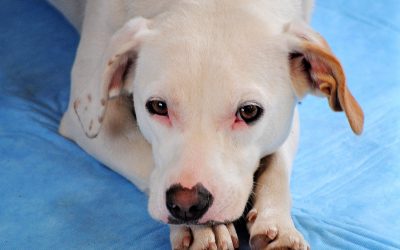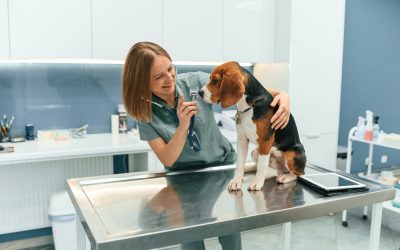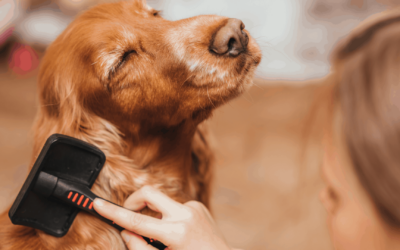Why Does My Dog’s Paw Smell Like Fritos?

Have you ever snuggled up with your furry friend and noticed a curious scent wafting from their paws—a smell oddly reminiscent of Fritos or corn chips? You’re not imagining things, and you’re certainly not alone. This quirky phenomenon, affectionately nicknamed “Frito feet,” has puzzled dog owners for years.
While this snack-like smell might seem strange at first, it’s actually quite common and usually harmless. Understanding where it comes from, however, can give you better insight into your pup’s health and help you care for them more effectively.
In this article, we’ll dive into the science behind this peculiar odor, explore what might cause it, and share practical tips to keep your dog’s paws fresh and healthy.
What Causes the Fritos Smell?
The distinctive Fritos-like scent on your dog’s paws stems from natural microorganisms that live on their skin. Pseudomonas bacteria and yeast are the usual culprits. These microbes thrive in the warm, slightly moist environment of a dog’s paw pads. When they break down sweat and oils, they release compounds responsible for that corn chip-like aroma.
While this is generally nothing to worry about, the intensity of the smell can vary based on factors like your dog’s health, hygiene, and even diet.
Why Are Dog Feet Prone to Infection?
As stated in the American Kennel Club article: ‘Your dog’s feet can be a magnet for dirt and grime. Along with limited airflow between their toes, the combination of fur, heat, and moisture makes an ideal breeding ground for bacteria and yeast. When there’s a buildup of these microorganisms, “dogs start licking their feet, which doesn’t clean the bacteria,” Dr. Attas says. “Instead, licking actually irritates the skin of the footpad and can lead to infection.”
Often, owners may only discover an infection once it has progressed to the point of causing pain or discomfort to their pets. Dr. Attas recommends getting your dog accustomed to you touching and smelling their eyes, ears, mouth, and feet. An older dog might be more resistant to you poking around, so it’s best to start when they’re puppies.
If your dog’s feet normally smell like Fritos and now they’re starting to “smell like moldy cheese, that’s when you need to contact your veterinarian,” Dr. Attas says. By examining your dog early and regularly, you’re more likely to notice a change in appearance and seek treatment earlier. Plus, your dog will feel more comfortable if you need to administer medication.’
How to Keep Your Dog’s Paws Smelling Fresh
If you’re looking to tackle the Fritos smell or prevent it from becoming overpowering, here are some simple, effective steps to try:
- Clean Their Paws Regularly
Wipe your dog’s paws with a damp cloth or use pet-safe wipes after walks to remove dirt and sweat. - Trim the Fur Between Their Toes
Excess fur can trap moisture, dirt, and bacteria. Regular trimming can keep their paws clean and odor-free. - Ensure Proper Air Circulation
Use fans or dehumidifiers in your home to reduce overall humidity, especially in areas where your dog rests. - Check Their Diet
Consider switching to high-quality, grain-free food if diet seems to be a factor. Talk to your vet for tailored recommendations. - Use Pet-Safe Deodorizers
Special paw sprays or wipes designed for odor control can help neutralize smells without irritating your dog’s skin.
How Can Pet Insurance Help You if Your Dog Needs a Treatment?
Pet insurance can be a valuable tool in managing the costs of treating a dog’s veterinary expenses. By having a pet insurance policy in place, you can have peace of mind knowing that you can provide medical care for your furry companion without worrying about the financial burden. Pet insurance can help cover the costs of veterinary consultations, diagnostic tests, medications, and even specialized treatments if required.
Reimbursement
This method is the most common for pet insurance companies. You pay out of pocket for the veterinarian bill, and then the insurance company reimburses you for what’s covered under the insurance plan. The steps look like this.
- You pay the vet bill after your dog’s visit.
- You fill out the pet insurance claim form.
- Submit the claim form and other required documentation to the insurer.
- After the claim is approved, you will be reimbursed for eligible expenses.
Odie’s Illness and Injury pet health insurance plan offers comprehensive coverage for your dog.
What Does Odie Pet Insurance Cover?
Pet insurance covers various veterinary expenses, providing financial protection and peace of mind for pet owners. Here are the details of the coverage options offered by Odie Pet Insurance:
Illness & Injury Plan
The Illness & Injury Plan is an all-inclusive insurance plan designed to cover a wide range of medical needs for your pet. This plan includes comprehensive coverage for various illnesses, injuries, and veterinary services. Some of the covered items include:
- Veterinary exams and consultations
- Diagnostics (e.g., X-rays, lab tests)
- Prescribed medications
- Surgeries and hospitalization
- Rehabilitation, acupuncture, or chiropractic treatments
- Medically necessary supplies
The Wellness Plan
The Wellness Plan is a monthly membership that focuses on preventive care and covers routine veterinary services.
- Provides reimbursements for routine care items such as wellness visits (exams and vaccines), testing and parasite prevention, dental cleanings and at-home dental care, vitamins, supplements, and more.
- Through Odie’s partnership with Petivity, a leader in smart pet products and proactive care, Wellness Plan members can also receive reimbursements for Petivity devices and health kits, as well as eligible Purina food and supplements.
- Total reimbursement up to $700 per year.



